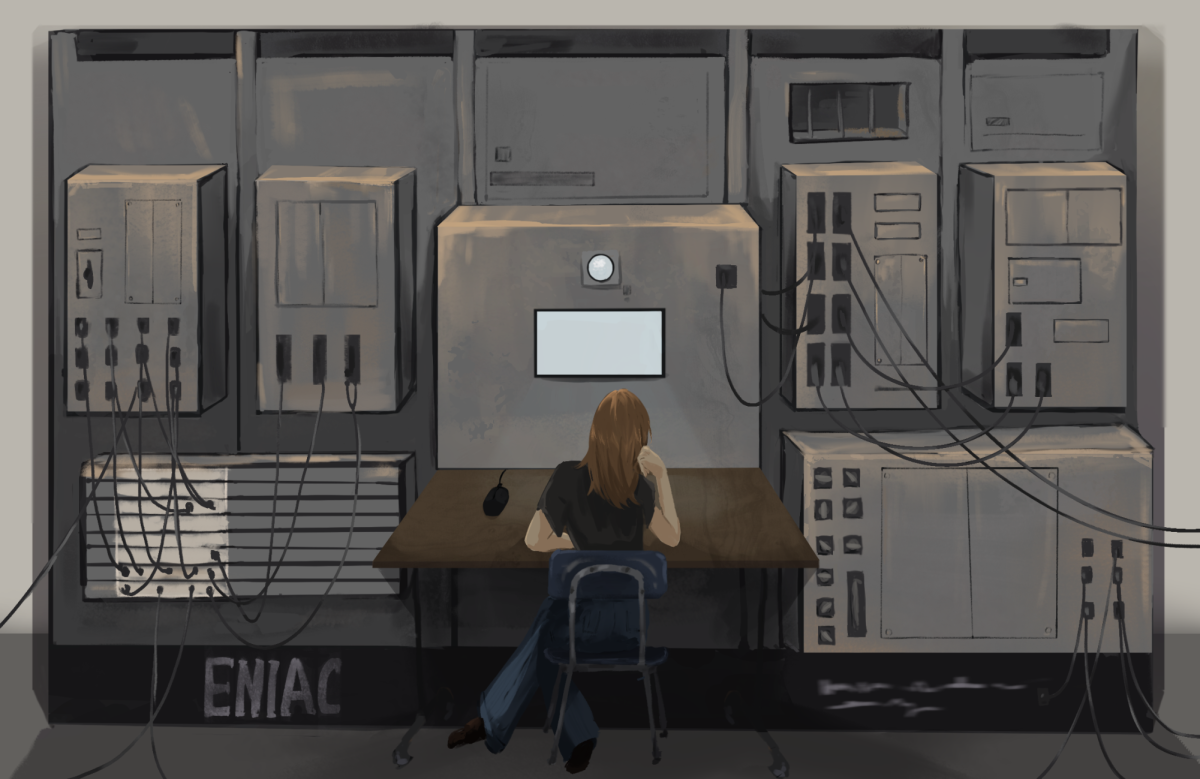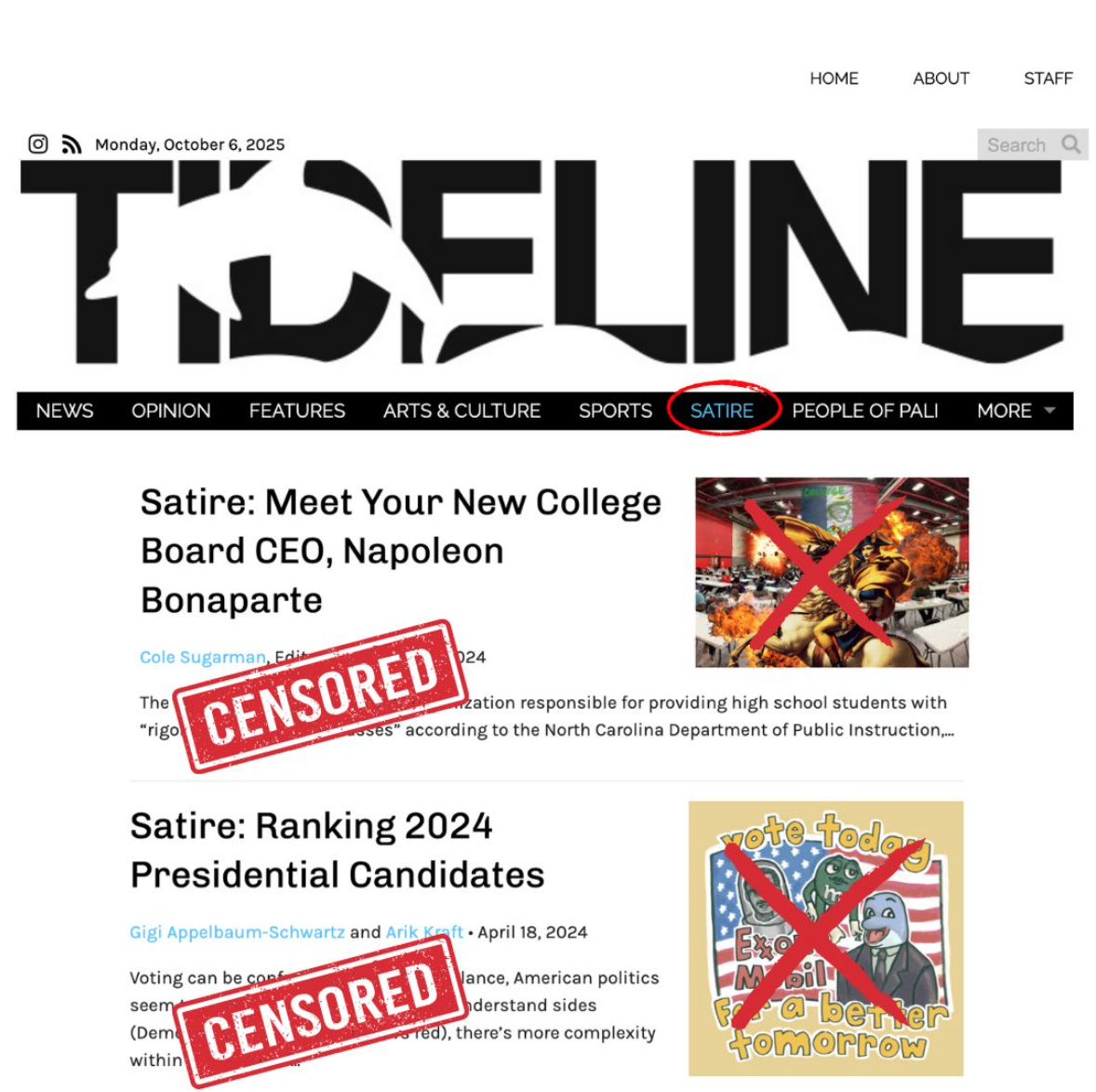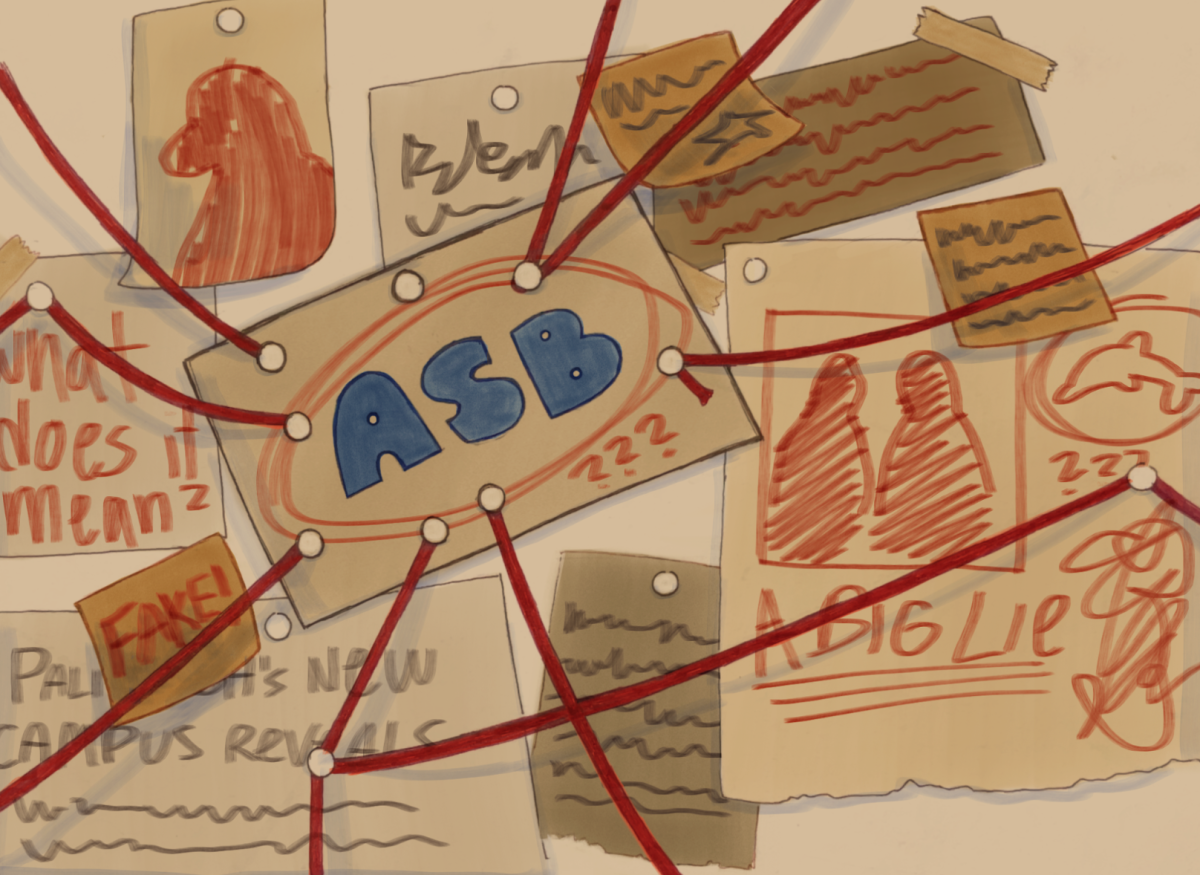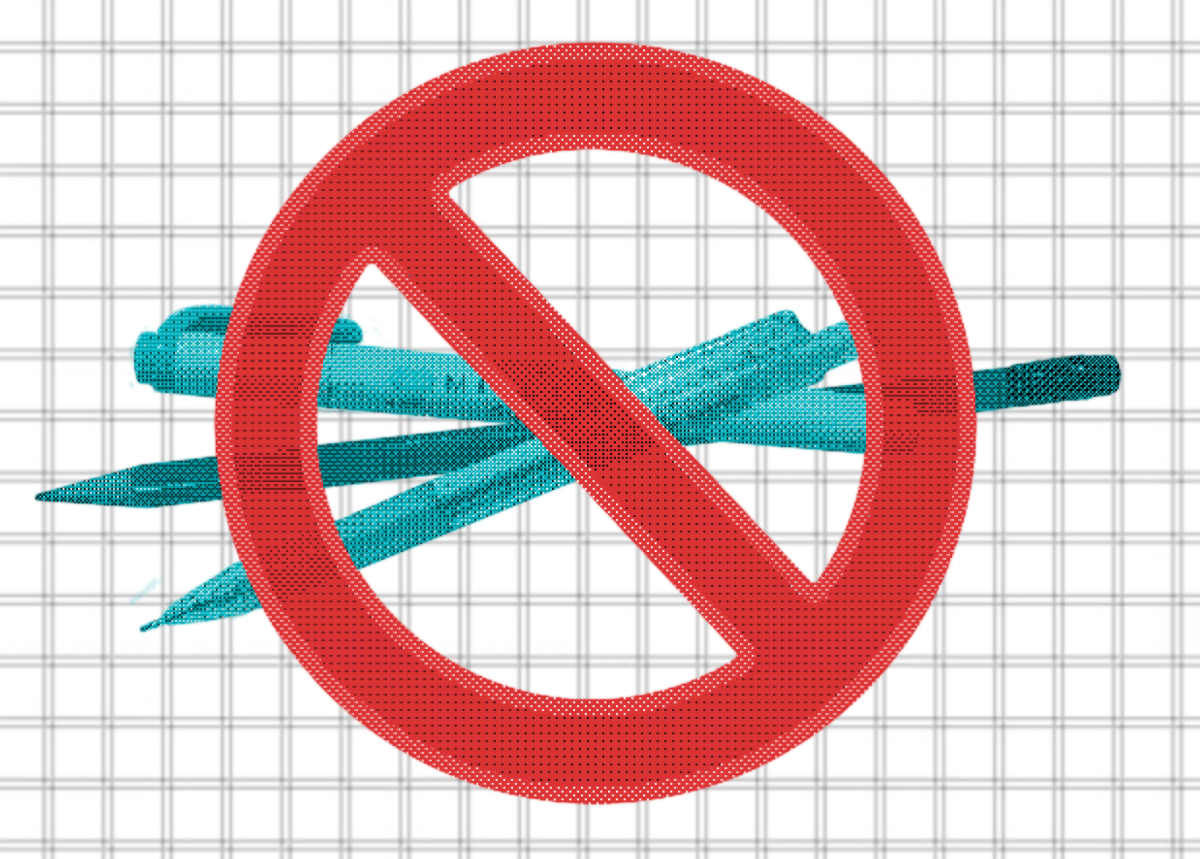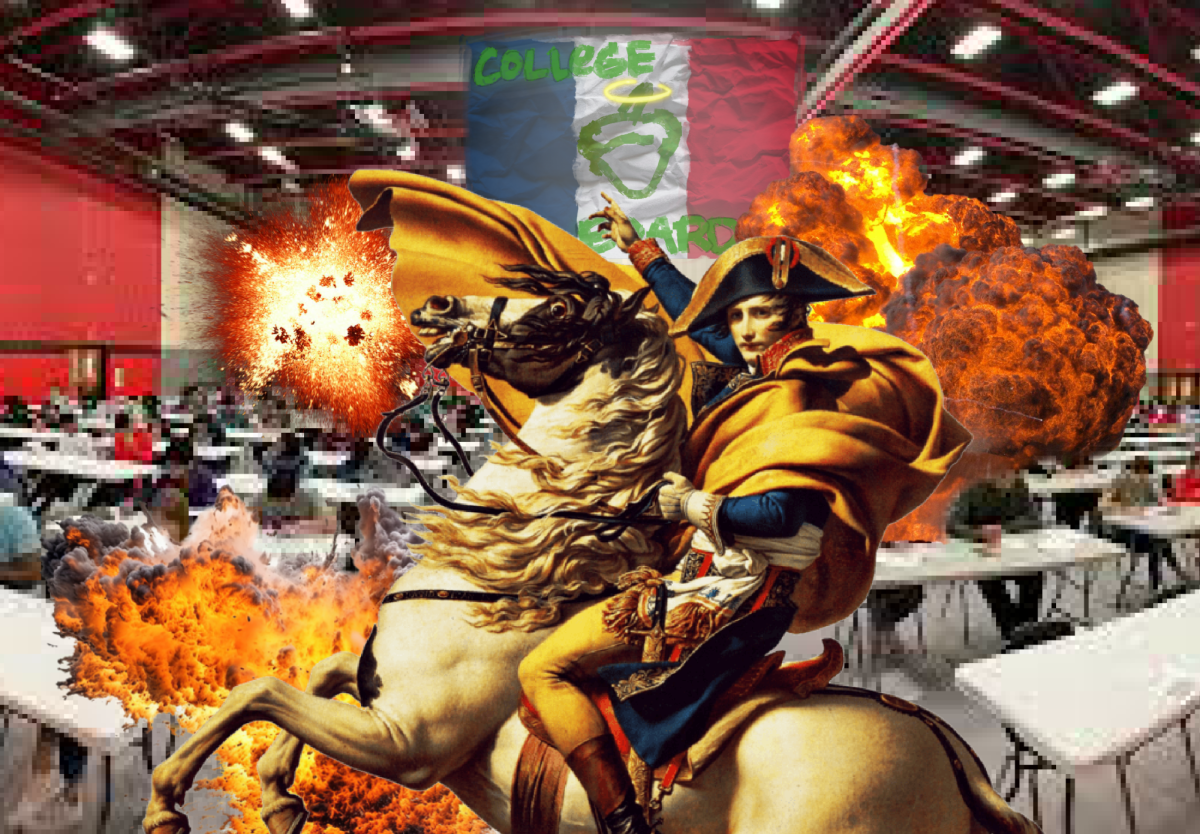Every decade there is an innovation so revolutionary that it completely changes how humans interact with the world around them. In the last century, humans invented the cell phone, artificial intelligence and human-cyborg technology, just to name a few.
One of these historic advancements was announced on June 18, 2100, when it was not a brilliant mind but a brilliant institution that made the next great stride in our human civilization.
Palisades Charter High School has made numerous sudden and unexpected changes in past years.
Pali’s newest move: a mandate on students using school-provided technology. The first-ever programmable, electronic, general purpose computer – the $6,850,000,000 Electronic Numerical Integrator and Computer (ENIAC) – will now be used by all Pali students on Advanced Placement (AP) Exams and in classrooms, as opposed to modern devices such as PearBook-Alpha 10s.
The ENIAC was invented in 1945. It is slow, difficult to type on and generally unintuitive. Many see this change as an expensive downgrade, but that is exactly the point, according to Pali principal King Magee III.
Picture this: an AP United States History student writing an essay on World War II-era advancements, and another on the industrial revolution, needing to complete both within 100 minutes, on a piece of actual 20th-century technology.
Just this immersive aspect of the ENIAC in history classes would make them well worth their expense, but the main reason behind the new requirement? Academic achievement.
Magee III’s logic is as follows: stress is a motivator — thus, if students expect to struggle because of their devices, they will end up doing better on exams. Easy! Remember: Pressure makes diamonds.
The process of “strategic downgrading,” a term coined by Pali, may yet improve our society and education system more than anything else ever dared to envision.
King Magee III eventually responded to Tideline’s request for an interview from his personal device, which happens to be a PearBook-Alpha 10. Magee III said, “Pali’s inferior technology will be the first step in beating the test scores of not only Crenshaw and Granada Hills, but even Harvard-Westlake.”
That’s what many truly admire about this change: Pali’s desire to diverge from the standard set by other public schools; its willingness to break away from the Los Angeles Unified School District’s precedent of using modern technology and seek innovation, not parody. This change will certainly lead to the school being ranked the No. 1 high school in the nation.
Students say that they especially admire that Pali did this all for their sakes, to improve their learning experiences and futures.
Associated Student Body (ASB) members at Pali have unanimously signed a petition to give King Magee III the Presidential Medal of Freedom because of his valiant actions in the fight to implement ENIACs across schools nationwide.
“I would like to recognize our amazing school administration and principal Magee III,” said one ASB member who requested anonymity in fear of retaliation from Pali administration for not referring to their principal as “his highness,” “my liege,” or “the King.”
They added: “[Pali] really allows us to have a voice. They routinely implement changes to policy based on student concerns that we bring to their attention and Magee III obviously had the grit to make this bold change.”
Despite the obvious benefits provided by Pali’s new doctrine, it is not all sunshine and rainbows on campus; every time an idea with this level of magnitude comes around, there are inevitably some who will fight against it.
Recently, some dangerous, reactionary actors have had the gall to question Pali’s ENIAC implementation.
Eighth-year sophomore Isaac Albert-Plato Oppenheimer said he has repeatedly had to restart not only his computer but his sophomore year because his “syllabi wouldn’t load,” but he remains determined to complete his education.
Oppenheimer said that he only made it out of freshman year by sneaking his PearBook into class.
King Magee III has recently cracked down on such delinquent actions, sending numerous students to detention over PearBook smuggling operations which, in theory, might lead to cheating. Students are now being tried on the basis that they are guilty until proven innocent.
Senior Thalia Mackay said that detention wasn’t really her vibe after being sent there for PearBook-use related allegations.
“I’m just going to bring my PearBook again tomorrow anyway,” Mackay said.
Another reason why this change may cause issues for Pali’s administration: Backlash from private-school-affiliated lobbyists and parents everywhere.
Private school parents have been lamenting Pali’s policy changes in blue bubbles on group chats, concerned about how their children could ever possibly keep up with public school kids now that they have the advantage of using ENIACs.
The bottom line for most of them is this: Private school students deserve to have an advantage over public school students, especially on important national exams. They may be able to pay for smaller class sizes and tutors, but that’s not enough.
Parents also want their children to have a technological advantage (via disadvantage) over their competition, but schools spending exorbitant amounts of money to “go ENIAC” are not allowing them to have that advantage, thus restricting their natural rights.
T. Pain, a Harvard-Westlake parent, wrote a pamphlet regarding these breaches titled “Common Decency.” The pamphlet outlines the private school parents’ movement to refuse paying public-school-related taxes without a proportional voting share when electing representatives. This would be used to end all ENIAC usage.
Today, from Brentwood to Greenwich to San Jose, parents are being radicalized by this literary work.
“I’m extremely upset. I’m going to take action,” said Adam Sandler as he sipped tea in sweatpants at a local Palisadian Chinese Food restaurant.
“They are hurting my kids, with MY tax dollars! Hell no, I’m not paying! I want my voice heard,” said Martha Stewart. “I call on everyone affected by these changes to speak up for themselves and stand up against ENIACs.”


